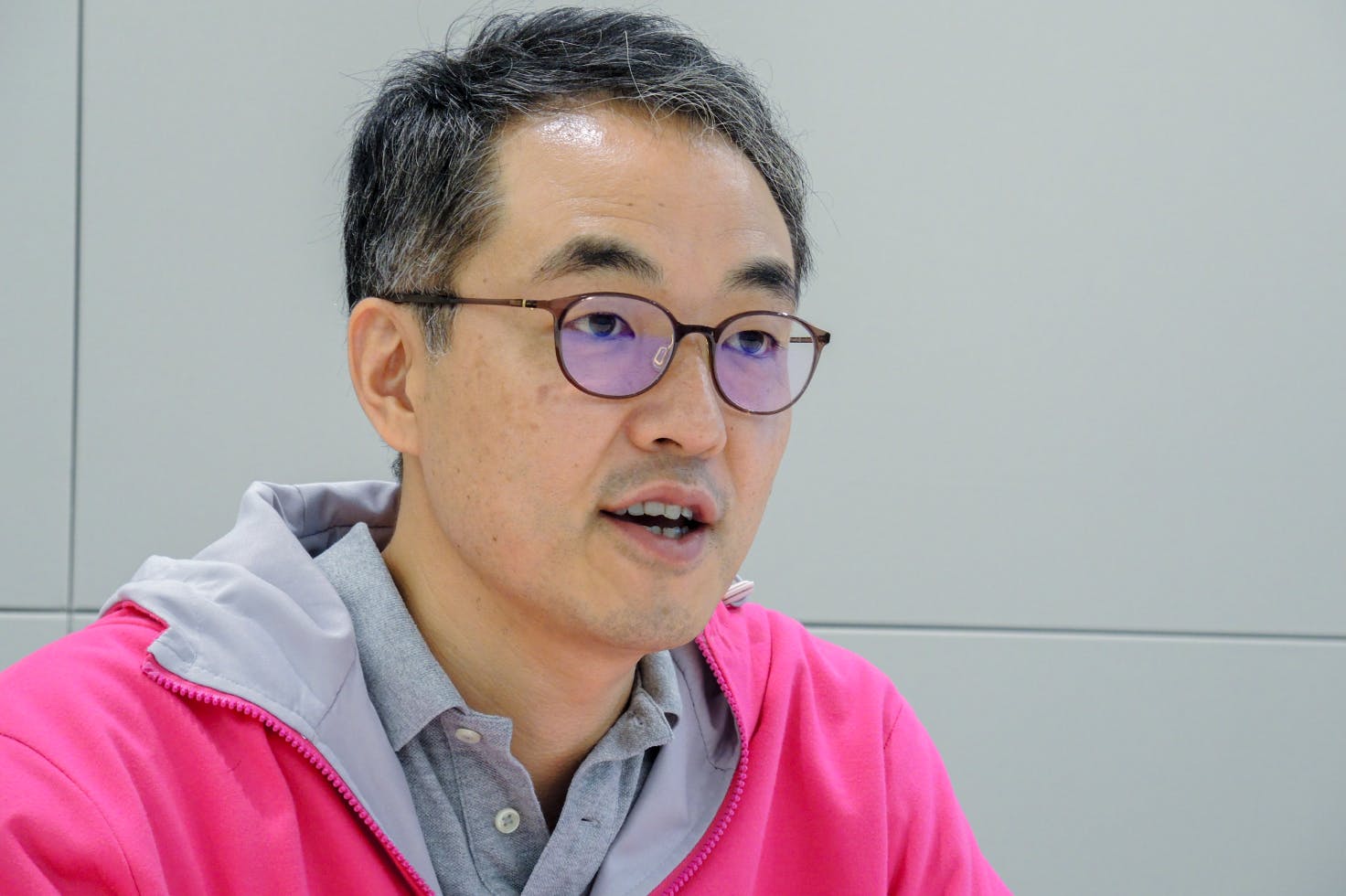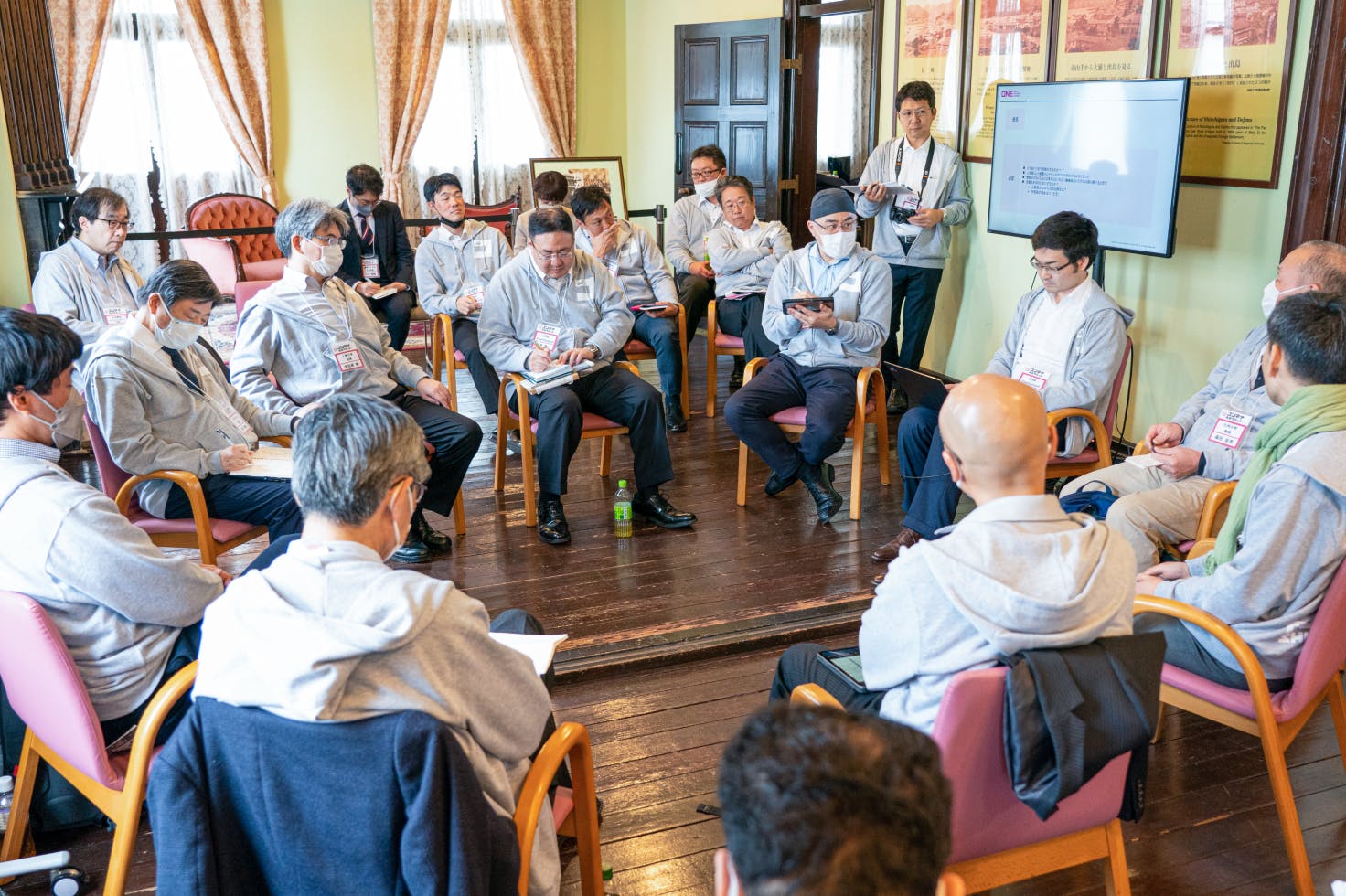Net Zero Greenhouse Gas Emissions! ONE's Challenge for 2050

The Challenge of Achieving Net Zero by 2050
As the world grapples with the increasingly evident effects of abnormal weather and global warming, the need to protect our global environment has become ever more critical. Following the Paris Agreement of 2016, in October 2022, Singapore raised its national climate target to net zero by 2050. Similar movements are taking place all over the world. This has also spread to industry, and ONE revealed an environmental strategy in March 2022 to tackle this major goal. While this challenge is still underway, ONE’s special correspondent asked the senior vice president in charge of this project about the front-line efforts underway.

Koshiro Wake / Senior Vice President, Corporate Strategy & Sustainability
ーDecarbonisation has become a hot topic in industrial circles towards the global goal of carbon neutrality by 2050. Is this affecting the shipping industry as well?
Yes, of course. It may come as a surprise, but shipping is an environmentally friendly mode of transport that emit far less CO2 per unit of transport than airplanes or trucks. However, shipping is responsible for more than 90% of the world’s trade volume, which means that a staggering amount of cargo is carried by vessels.
A large number of vessels are required in proportion to the volume of cargo transported, which inevitably increases CO2 emissions. Although it is more environmentally friendly, that does not mean that we don’t have to take any action.

Comparison of CO2 Emissions from Transport | Source: International Chamber of Shipping website
ーThen the concern is the amount of CO2 emissions from the shipping industry. What is the volume of emissions from shipping in general, and from container shipping in particular?
International shipping accounts for about 2-3% of global CO2 emissions. Container shipping emissions account for about 20-30% of all shipping emissions.
ーIs there a common goal to reduce CO2 emissions in the shipping industry as a whole?
At the 80th Marine Environment Protection Committee (MEPC 80) held in London in July 2023, the International Maritime Organization (IMO) declared that greenhouse gas emissions, including CO2, would be reduced to “Net zero by 2050.” The previous goal was a gradual reduction, but a higher goal has been established. As a result, the entire shipping industry is now working in earnest to achieve net zero emissions by 2050.

The shipping industry is undertaking efforts to protect the global environment.
ーI see. So, does that mean that ONE has started making an effort to reduce greenhouse gas emissions?
Yes, we are actively working on this. Achieving a goal of this magnitude requires collaboration across the entire organization. The success of this ambitious endeavor hinges on not only internal collaboration but also on fostering partnerships with external stakeholders. In 2021, we established the Green Strategy Department, and from the beginning, members from various divisions, including technical department, vessel operations, network planning, fuel procurement, and commercial division, participated in discussions. These discussions formed the basis of ONE’s Green Strategy that was announced in 2022.

A megamax container vessel launched in 2023 that incorporates the latest in environmental technologies
ーPlease tell me more about ONE's Green Strategy.
The first step is to reduce greenhouse gas emissions per TEU/km by 70% from the 2008 level in Scope 1 in 2030, followed by the 2050 goal of achieving net zero emissions including Scope 2 and 3. It sounds very difficult, doesn’t it?
ーYes, it sounds very difficult. Can you tell us what “Scope” means?
It simply means “range,” and the numbers from 1 to 3 represent different ranges.
Scope 1: Greenhouse gasses emitted directly from vessels operated by ONE
Scope 2-3: Greenhouse gasses not directly emitted from ONE's vessels,
but by electricity purchases and by our suppliers, and other stakeholders.
And "TEU" is a unit of one 20-foot container, a typical size of container.
The goal we have set for ONE’s vessels (Scope 1) is to reduce the greenhouse gas emissions from transporting one kilometer of cargo in a 20-foot container by 70% from the 2008 level in 2030. ONE's Scope 3 is to reduce greenhouse gas emissions from ONE's suppliers and the entire supply chain to net zero, which is quite difficult. Cooperation with our partners is essential, but I believe it is not impossible if everyone commits to carbon neutrality.
ーThat is a huge goal. What specific actions are you taking to achieve the goal?
ONE has seven key initiatives in its Green strategy, five of which are specifically related to decarbonisation: green investment, alternative fuels, carbon management, operational efficiency, and community ecosystem building.

I will introduce some of the initiatives. The focus of green investment is large-scale investment in environmentally friendly vessels (green fuel vessels ). In 2025, large container vessels with superior fuel efficiency and designed to run with environmentally friendly fuels (ammonia and methanol) will be delivered. In 2027, large container vessels with methanol dual-fuel engine are scheduled to be delivered. Through these investments, we aim to reduce greenhouse gas emissions from vessels. We are also investing in new environmentally-friendly vessel related technologies. In 2023, we introduced 2 containerized wind assist devices, to test out the potential of wind power in reducing fuel consumption and greenhouse gas emissions. We also plan to invest in a variety of new environment-related technologies.
ーTo use wind power, sounds like a dream technology! Are there any other initiatives that you are working on now?
In the field of alternative fuels, we see more and more investment in methanol dual-fueled vessels. I believe investment for ammonia powered vessels will also increase, and with the cooperation of our partners, we obtained AiP (Approval in Principle) for ammonia dual-fueled container vessels. This means that we have confirmed the technical feasibility of the basic concept of future ammonia dual-fueled container vessels. We are also looking into the possibilities of advanced fuels such as hydrogen, but it may take some time before it becomes a reality. These are all environmentally friendly fuels that emit less greenhouse gasses than the conventional fuels that have been used up to now.
Community ecosystem building means leveraging external networks and collaboration. As I mentioned earlier, the goal of net zero by 2050 can only be achieved through cooperation with various stakeholders. Of course, competition is important, but the key to success is a collaborative approach rather than holding a monopoly on decarbonizing technologies and initiatives. I want to tackle this together with like-minded people.

Containerized wind assist device. Functions as a sail aboard the vessel.
ーFinally, please tell me what you yourself think about achieving net zero by 2050 and about your concerns for the global environment.
Our business is transporting a wide variety of goods around the world. The essence goes beyond simply moving cargoes; it's about enriching people's lives by delivering cherished items and connecting them to the emotions of those involved in the journey. Now fossil fuels are the main fuels used in global shipping, which has a great impact on the global environment. Achieving sustainability in container shipping, an essential part of our societal infrastructure, requires immediate and substantial decarbonization efforts. I want to do my utmost to make sustainable container shipping a reality, ensuring its continued support of lives for generations to come.
Three takeaways from the ONE special correspondent on the challenge of achieving net zero by 2050
- Shipping has been an eco-friendly mode of transportation, but still we are trying to become more eco-friendly to protect the global environment.
- ONE has released a Green Strategy with a goal of net zero greenhouse gas emissions by 2050.
- Saving the environmental cannot be done by one company alone. It is important for various partners to cooperate in doing the work.
Mr. Wake is responsible for formulating and implementing corporate, environment and PR strategies in ONE.
A special reporting team that closely follows every project in order to tell the world about ONE. They dig into the what and the why in order to convey ONE’s positions on business, shipping, and the environment.
Efficiency
Sustainability
AS ONE, WE CAN.

The Power of Picture Books: Sharing ONE's Story An Invitation from ONE for Children, to the World Beyond Containers

Discussing the future of shipping with leading academia. ONE's new challenge "Container Shipping Summit"

Our mission is "Empowering Global Business from Nagasaki" Looking at the challenges of ONE DEJIMA, which is more than just marine transportation!

